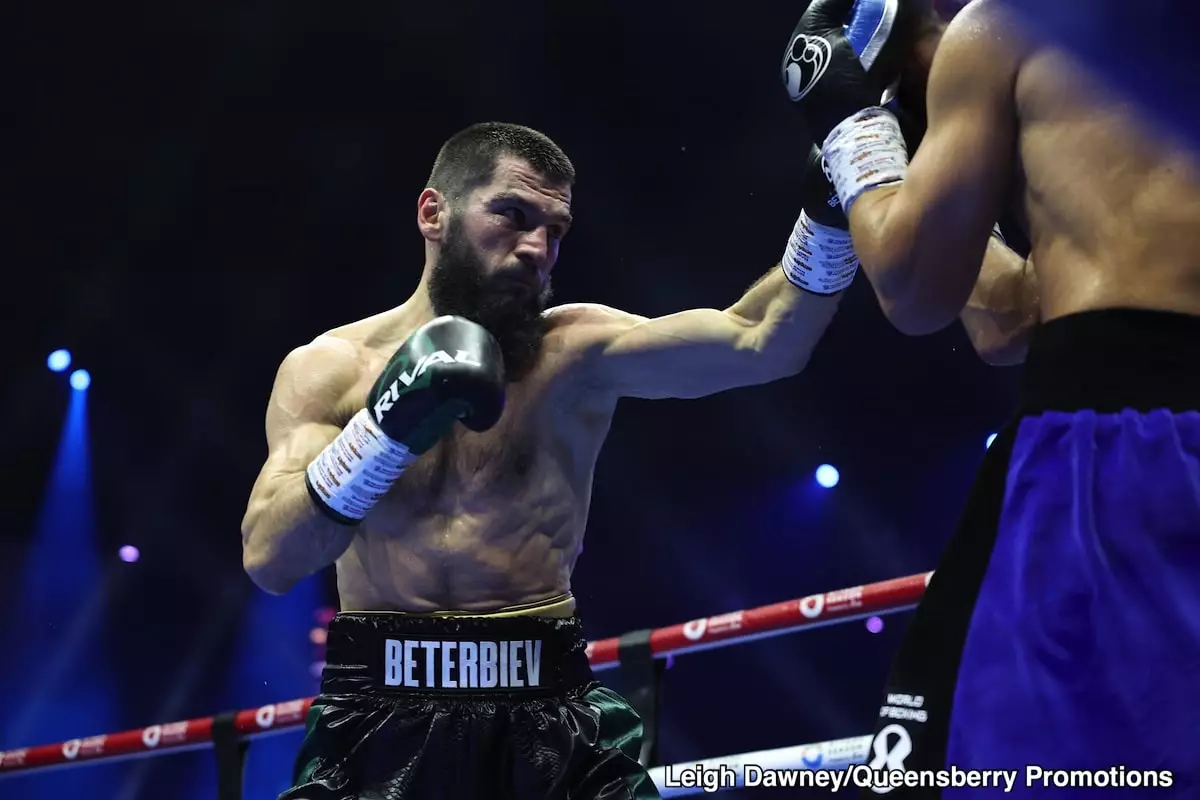Bob Arum, a prominent promoter in the boxing world, has voiced his frustration regarding the International Boxing Federation (IBF) ordering Artur Beterbiev, the reigning undisputed light heavyweight champion, to defend his title against the relatively unknown Michael Eifert. This decision comes immediately after Beterbiev’s significant victory over Dmitry Bivol, a fight that many regard as pivotal in his career. Arum’s criticism stems from the belief that forcing a champion to face an opponent with limited recognition detracts from the prestige of holding an IBF title, especially after such a celebrated win.
Arum’s frustrations highlight a larger issue within boxing: the regulations imposed by sanctioning bodies like the IBF. While these rules are ostensibly designed to protect fighters and maintain order in the sport, they can sometimes produce scenarios that feel nonsensical. Beterbiev’s outstanding record of 21 wins with 20 KOs elevates him to the status of a marquee fighter, making a match against Eifert, whose record stands at a modest 13 wins and only 5 KOs, seem unworthy of a title defense. The promoter’s call for the IBF to reconsider its rules raises legitimate questions about the system that governs the sport and whether it promotes the best fighting the best.
The uncertainty surrounding Beterbiev’s next opponent does not end with the IBF’s mandate. Speculation about a potential rematch with Bivol continues, but there are compelling arguments for more high-profile matchups. Turki Alalshikh’s interest in setting up a sequel to the Beterbiev-Bivol bout suggests that the sport’s stakeholders recognize the buzz surrounding a high-stakes contest. However, it appears that the allure of a showdown against Canelo Alvarez or David Benavidez could entice both fans and promoters alike, potentially overshadowing a staid rematch against Bivol, known for his less-than-exciting boxing style.
Fans’ inclinations are also vital in this discussion. While the rematch with Bivol holds some intrigue due to the controversial nature of their last encounter, the prospect of facing either Canelo Alvarez or David Benavidez is electrifying. These fighters bring a dynamic style to the ring, promising intense action that fans crave. Arum’s preference for a bout with Alvarez, in particular, suggests that revenue and audience engagement are as critical as titles in boxing today. The financial implications of such a fight, likely generating substantial pay-per-view buys, make it an attractive option for all parties involved.
Bob Arum’s irritation with the IBF’s directive shines a spotlight on the complexities and often frustrating regulations that permeate the boxing industry. As notable fighters like Beterbiev navigate their careers, navigating the landscapes formed by sanctioning organizations becomes a significant challenge. Ultimately, the debate raises crucial points about the direction of the sport, the significance of titles, and what fans genuinely desire to see in the ring.

